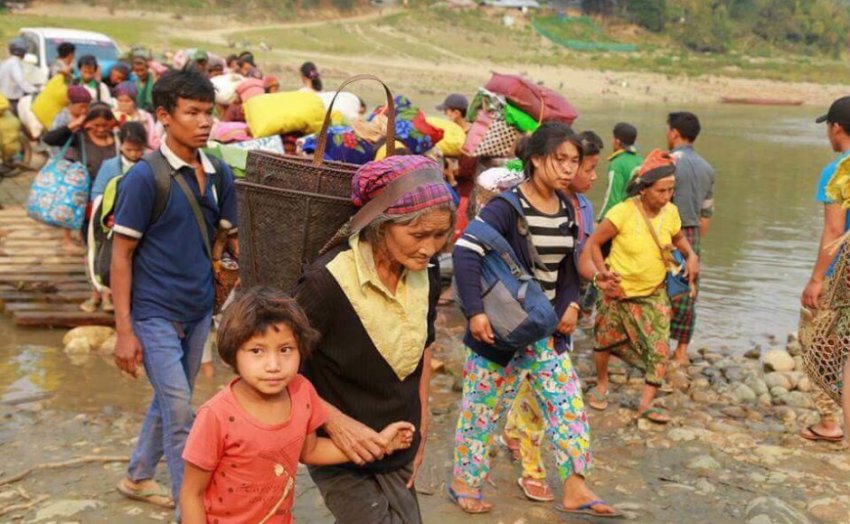
The United Nations said that nearly 4000 people have been driven out of their homes in Myanmar (also known as Burma) in April as the country’s north is gripped with violence.
In Kachin, the northernmost state in Myanmar, violence has escalated against an ethnic minority, as in the southern state of Rakhine.
The Kachin are mostly Christian and have fought for greater autonomy in the predominantly Buddhist country since 1961. Since then, tensions between the Kachin Independence Organisation (KIO) and government forces have displaced an estimated 120,000 people.
After a ceasefire broke down between the KIO and the military in 2011, the tensions between the military and the rebel group have sporadically flared up.
“Our biggest concern is for the safety of civilians — including pregnant women, the elderly, small children and people with disabilities,” Mark Cutts, the head of the United Nations’ Office for the Coordination of Humanitarian Affairs (OCHA), told AFP. “We must ensure that these people are protected.”
Meanwhile, a UN Security Council delegation visiting the camps of the besieged Rohingya minority alongside Bangladesh border said they encountered “overwhelming” suffering.
The delegation heard first-hand experiences of 700,000 Rohingya refugees who have been subjected to violence, rape and arson by Myanmar’s military since August.
A United Nations High Commissioner for Refugees fact-finding mission report published in March highlighted “concrete and overwhelming information” of serious crimes against ethnic minorities in Myanmar.
The report noted that Myanmar authorities were “dismissing reports that serious human rights violations have been committed in Kachin, Shan and Rakhine states”.
“The body of information and materials we are collecting is concrete and overwhelming,” the three experts of the fact-finding mission noted. “It points at human rights violations of the most serious kind, in all likelihood amounting to crimes under international law.”
[Abridged from TeleSUR English.]